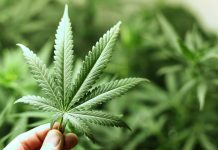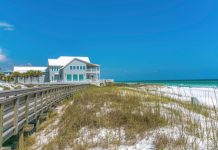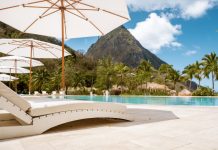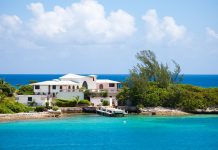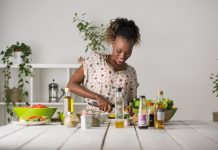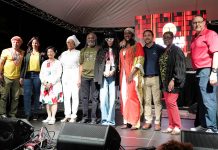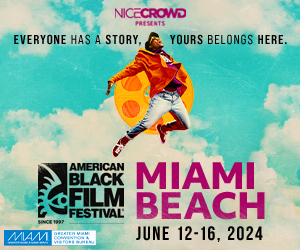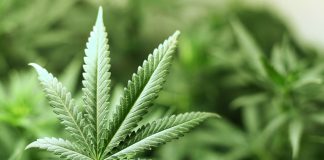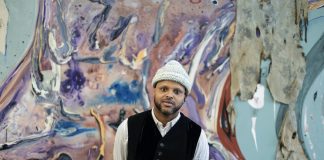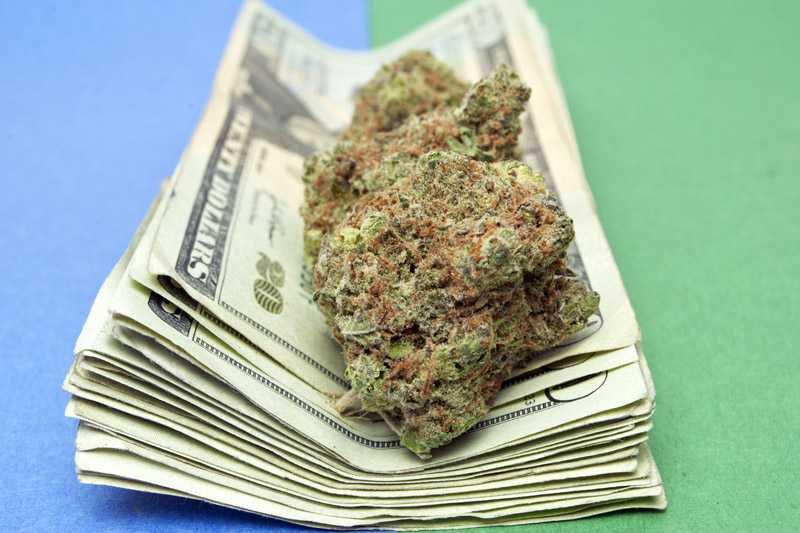
Writer Ghenete Wright Muir and Sonia Morgan
Can Jamaica Cash in on Cannabis?
It’s like walking into a café and ordering a specialty coffee drink, or a bagel with butter – except you need ID. The man behind the counter, a middle-aged white man, wants to know what kind of high you want from his selection of pre-rolled spliffs, edibles and bags of weed. The experience is surreal but surprisingly normal. You think, how is it possible to legally buy weed here in Seattle, Washington, but not in Kingston, Jamaica?
The truth is that this plant, once demonized as the black And brown man’s drug, today is dressed up and repackaged as a Legal, economy-boosting product. Cannabis is sold for recreational use in eight states throughout the US, and medical marijuana is legal In 29 states, though it remains illegal at the federal level. Marijuana, as a traded commodity, is becoming an investment option for many, luring high-profile investors such as rapper Snoop Dogg, Paypal co-founder Peter Thiel and former boxer Mike Tyson.
Forbes magazine recently reported that the legal marijuana industry in the US will create more jobs than manufacturing. In 2016, the legal cannabis market was estimated to be worth $7.2 billion, and it is expected to be worth $50 billion by 2026, eight times its current size, according to Bloomberg.
The question is, how can Jamaica, the cultural epicenter of marijuana, profit from this multi-billion dollar cash-crop?
STILL FIGHTING AGAINST GANJA
Michael Burgess, a Jamaican living in Canada, who has invested in the cannabis industry there said, “the whole illegality surrounding marijuana has been fraught with lies and misrepresentation for decades.” In fact, the war against marijuana started in the United States in the 1930s and continues to be waged today. Over the years, this campaign moved well beyond the US. It not only made millions of people into criminals, it also helped to cripple the economies of countries like Jamaica, that could have benefited significantly from a legal cannabis industry.
Decades ago, Jamaica made its mark as the capital of cannabis. The growing Rastafarian movement, in the 1970s, branded Jamaica as the place to get the ‘good ganja’. Reggae music, which in many ways is the gospel of Rastafarians, helped spread that message worldwide. Yet, today Jamaica is struggling to figure out how to enter and profit from the booming marijuana industry. Peter Tosh in his 1975 reggae anthem legalize it pleaded with the government of the day singing, “legalize it, don’t criticize it and I will advertise it.” Of course, much like today, Jamaica was under immense pressure to adhere to US marijuana regulations.
It’s ironic that the US, which played a major role in ensuring that Jamaica criminalized marijuana, is now enjoying the financial benefits of legalized weed.
Island Origins had the opportunity to speak with world-renowned Jamaican scientist, Dr. Henry Lowe. He, along with his colleagues, Dr. Albert Lockhart and Dr. Manley west, used cannabis, back in the 1970s, to develop Canasol, an eyedrop medication used to treat glaucoma, that was sold only in Jamaica. However, Dr. Lowe said the US discouraged any continued research and development of pharmaceuticals from ganja.
But Dr. Lowe had a reawakening when he saw a CNN report by Dr. Sanjay Gupta promoting medical marijuana. It was then he realized a momentum was building. “I was very bold and set up the first commercial cannabis company in the region, MediCanja. It was not legal, but i saw where it was going. Everybody thought I was crazy. How can you do this? The government hasn’t approved it, everybody else is against it.” Now, four years later, his company has eight pharmaceutical products made from cannabis, and recently received FDA approval for a ganja based anti-cancer drug.
So what’s holding Jamaica back? Dr. Lowe thinks that “we shoot ourselves in the foot, or we don’t shoot at all.”
Jamaica has decriminalized ganja, effectively allowing individuals to have up to two ounces for personal use and five plants per household. Rastafarians who have long been persecuted for using the plant as a sacrament can now practice their ritual without risk of prosecution. But ganja is still largely illegal on the island.
Jamaica still has to adhere to the United Nations drug treaty, which means the road to complete legalization and capitalization is yet to be paved. This is not to say the country doesn’t want to move forward. According to the Cannabis Licensing Authority of Jamaica (CLA), “If Jamaica is to have any real opportunity in the business of ganja, there must first be evidence of the ability to maintain a responsible industry.”
BURDENSOME AND COST-PROHIBITIVE
Burgess said he would also like to invest in a Jamaican marijuana industry, but finds that the country “is too far behind the gate at this point.” He believes it would be difficult for the island to cultivate the plant on a significant scale. “Jamaica doesn’t have the seed production. People of influence in Jamaica are not rallying behind the industry, and there are still stigmas attached to ganja.” He also points out Jamaica’s obligations to the World Bank and IMF loan regulations, and that “government has not really rallied behind any agricultural industry.”
Damian “Jr. Gong” Marley, the youngest son of reggae legend Bob Marley, has entered the market powerfully with his burgeoning empire Stony Hill. He bought a California prison and converted it into a marijuana farm, opened a dispensary in Colorado, and has invested in High Times Magazine.
But what about the small farmers and entrepreneurs who don’t have the resources at the ready? In other words, is there an opportunity for regular Jamaican people to cash in on this now booming industry?
Dr. Lowe doubts the small farmer can be a significant part of the new industry. The licensing for cultivating in Jamaica at this point starts at US $2,000 per acre annually, and is likely to be out of reach for those farmers. Burgess agrees, adding that the process is quite “burdensome and cost-prohibitive.”
Billy Rennalls, a Rasta residing in Kingston, has been a part of the activism that led to decriminalization. He lamented that the CLA also requires farmers to have a title to the land they use to grow ganja, which is a challenge, because many of them don’t own the land they’re farming.
WHAT DOES THE FUTURE HOLD FOR JAMAICA?
But there may be a light at the end of the spliff.
Rennalls is also director of Canna Headhunters, an employment agency for the emerging legal marijuana industry. At the helm of Canna Headhunters is Florida-based Jamaican Attorney Scheril Murray Powell. She practices in the field of agricultural and cannabis law, and together they navigate this new terrain. They want to help Jamaica play a significant role in the ganja industry. Murray Powell believes that “through education and research, Jamaica will reclaim its place as the cradle of cannabis.”
Dr. Lowe is also planning a medicinal ganja cafe at his wellness resort, Eden Gardens, in Kingston. But legal recreational use is still a pipe dream. “Our government is tiptoeing to even allow medicinal and scientific research. The whole thing is very slow in terms of getting off the ground,” Dr. Lowe said.
Does legalized marijuana have the power to lift Jamaica out of “third world” status? Dr. Lowe doesn’t think so. “Jamaica is losing the edge. We have lost about 75% of our potential…and will not significantly benefit from the cannabis industry.” For Jamaica to benefit, it will take a joint effort between the Jamaican government, the private sector and local farmers, as well as the support of influential foreign entities.
It may be that Jamaica’s best hope is to rely on ganja tourism— festivals, “bud and breakfast,” tours, and more—marketing the cultural experience of enjoying Jamaican ganja and its products in Jamaica. Rennalls said, “Ganja is Jamaica’s brand, like our coffee, rum and reggae. We have a unique product that no one can get anywhere else. People need to come here and experience it. It’s part of our brand Jamaica and cannot be duplicated.”




